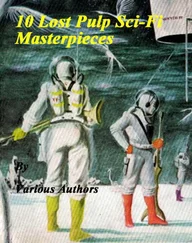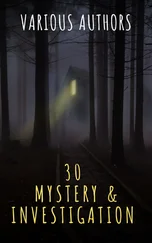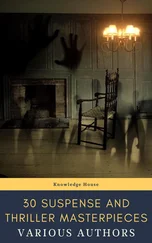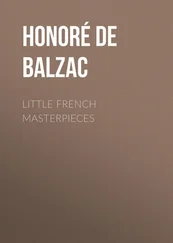W. Maugham - Selected Masterpieces
Здесь есть возможность читать онлайн «W. Maugham - Selected Masterpieces» весь текст электронной книги совершенно бесплатно (целиком полную версию без сокращений). В некоторых случаях можно слушать аудио, скачать через торрент в формате fb2 и присутствует краткое содержание. Жанр: Классическая проза, на английском языке. Описание произведения, (предисловие) а так же отзывы посетителей доступны на портале библиотеки ЛибКат.
- Название:Selected Masterpieces
- Автор:
- Жанр:
- Год:неизвестен
- ISBN:нет данных
- Рейтинг книги:5 / 5. Голосов: 1
-
Избранное:Добавить в избранное
- Отзывы:
-
Ваша оценка:
- 100
- 1
- 2
- 3
- 4
- 5
Selected Masterpieces: краткое содержание, описание и аннотация
Предлагаем к чтению аннотацию, описание, краткое содержание или предисловие (зависит от того, что написал сам автор книги «Selected Masterpieces»). Если вы не нашли необходимую информацию о книге — напишите в комментариях, мы постараемся отыскать её.
Selected Masterpieces — читать онлайн бесплатно полную книгу (весь текст) целиком
Ниже представлен текст книги, разбитый по страницам. Система сохранения места последней прочитанной страницы, позволяет с удобством читать онлайн бесплатно книгу «Selected Masterpieces», без необходимости каждый раз заново искать на чём Вы остановились. Поставьте закладку, и сможете в любой момент перейти на страницу, на которой закончили чтение.
Интервал:
Закладка:
"O God, give me strength," she cried.
Then, as he walked along, the dog, an old dog they'd had for years, ran up to him barking angrily. He had tried for months to make friends with the dog, but it had never responded to his advances; when he tried to pat it, it backed away growling and showing its teeth. And now as the dog ran towards him, irritably giving way to his feeling of frustration, Hans gave it a savage brutal kick and the dog was flung into the bushes and limped yelping away.
"The beast," she cried. "Lies, lies, lies. And I was weak enough to be almost sorry for him."
There was a looking-glass hanging by the side of the door and she looked at herself in it. She drew herself up and smiled at her reflection. But rather than a smile it was a finished grimace.
It was now March. There was a bustle of activity in the garrison at Soissons. There were inspections and there was intensive training. Rumour was rife. There was no doubt they were going somewhere, but the rank and file could only guess where. Some thought they were being got ready at last for the invasion of England, others were of opinion that they would be sent to the Balkans, and others again talked of the Ukraine. Hans was kept busy. It was not till the second Sunday afternoon that he was able to get out to the farm. It was a cold grey day, with sleet that looked as though it might turn to snow falling in sudden windy flurries. The country was grim and cheerless.
"You!" cried Madame Perier when he went in. "We thought you were dead."
"I couldn't come before. We're off any day now. We don't know when."
"The baby was born this morning. It's a boy."
Hans's heart gave a great leap in his breast. He hung his arms round the old woman and kissed her on both cheeks.
"A Sunday child, he ought to be lucky. Let's open the bottle of champagne. How's Annette?"
"She's as well as can be expected. She had a very easy time. She began to have pains last night and by five o'clock this morning it was all over."
Old Perier was smoking his pipe sitting as near the stove as he could get. He smiled quiedy at the boy's enthusiasm.
"One's first child, it has an effect on one," he said.
"He has quite a lot of hair and it's as fair as yours; and blue eyes just like you said he'd have," said Madame Perier. "I've never seen a lovelier baby. He'll be just like his papa."
"Oh, my God, I'm so happy," cried Hans. "How beautiful the world is! I want to see Annette."
"I don't know if she'll see you. I don't want to upset her on account of the milk."
"No, no, don't upset her on my account. If she doesn't want to see me it doesn't matter. But let me see the baby just for a minute."
"I'll see what I can do. I'll try to bring it down."
Madame Perier went out and they heard her heavy tread clumping up the stairs. But in a moment they heard her clattering down again. She burst into the kitchen.
"They're not there. She isn't in her room. The baby's gone."
Perier and Hans cried out and without thinking what they were doing all three of them scampered upstairs. The harsh light of the winter afternoon cast over the shabby furniture, the iron bed, the cheap wardrobe, the chest of drawers, a dismal squalor. There was no one in the room.
"Where is she?" screamed Madame Perier. She ran into the narrow passage, opening doors, and called the girl's name. "Annette, Annette. Oh, what madness!"
"Perhaps in the sitting-room."
They ran downstairs to the unused parlour. An icy air met them as they opened the door. They opened the door of a storeroom.
"She's gone out. Something awful has happened."
"How could she have got out?" asked Hans sick with anxiety.
"Through the front door, you fool."
Perier went up to it and looked.
"That's right. The bolt's drawn back."
"Oh, my God, my God, what madness," cried Madame Perier; "It'll kill her."
"We must look for her," said Hans. Instinctively, because that was the way he always went in and out, he ran back into the kitchen and the others followed him. "Which way?"
"The brook," the old woman gasped.
He stopped as though turned to stone with horror. He stared at the old woman aghast.
"I'm frightened," she cried. "I'm frightened."
Hans flung open the door, and as he did so Annette walked in. She had nothing on but her nightdress and a flimsy rayon dressing-gown. It was pink, with pale blue flowers. She was soaked, and her hair, dishevelled, clung damply to her head and hung down her shoulders in bedraggled wisps. She was deathly white. Madame Perier sprang towards her and took her in her arms.
"Where have you been? Oh, my poor child, you're wet through. What madness!"
But Annette pushed her away. She looked at Hans.
"You've come at the right moment, you."
"Where's the baby?" cried Madame Perier.
"I had to do it at once. I was afraid if I waited I shouldn't have the courage."
"Annette, what have you done?"
"I've done what I had to do. I took it down to the brook and held it under water till it was dead."
Hans gave a great cry, the cry of an animal wounded to death; he covered his face with his hands, and staggering like a drunken man flung out of the door. Annette sank into a chair, and leaning her forehead on her two fists burst into passionate weeping.
The Escape
I have always been convinced that if a woman once made up her mind to marry a man nothing but instant flight could save him. Not always that; for once a friend of mine, seeing the inevitable loom menacingly before him, took ship from a certain port (with a tooth-brash for all his luggage, so conscious was he of his danger and the necessity for immediate action) and spent a year travelling round the world; but when, thinking himself safe (women are fickle, he said, and in twelve months she will have forgotten all about me), he landed at the selfsame port the first person he saw gaily waving to him from the quay was the little lady from whom he had fled. I have only once known a man who in such circumstances managed to extricate himself. His name was Roger Charing. He was no longer young when he fell in love with Ruth Barlow and he had had sufficient experience to make him careful; but Ruth Barlow had a gift (or should I call it a quality?) that renders most men defenceless, and it was this that dispossessed Roger of his commonsense, his prudence, and his worldly wisdom. He went down like a row of ninepins. This was the gift of pathos. Mrs Barlow, for she was twice a widow, had splendid dark eyes and they were the most moving I ever saw; they seemed to be ever on the point of filling with tears; they suggested that the world was too much for her, and you felt that, poor dear, her sufferings had been more than anyone should be asked to bear. If, like Roger Charing, you were a strong, hefty fellow with plenty of money, it was almost inevitable that you should say to yourself: I must stand between the hazards of life and this helpless little thing, oh, how wonderful it would be to take the sadness put of those big and lovely eyes! I gathered from Roger that everyone had treated Mrs Barlow very badly. She was apparently one of those unfortunate persons with whom nothing by any chance goes right. If she married a husband he beat her; if she employed a broker he cheated her; if she engaged a cook she drank. She never had a little lamb but it was sure to die.
When Roger told me that he had at last persuaded her to marry him, I wished him joy.
"I hope you'll be good friends," he said. "She's a little afraid of you, you know; she thinks you're callous."
"Upon my word I don't know why she should think that."
"You do like her, don't you?"
"Very much."
"She's had a rotten time, poor dear. I feel so dreadfully sorry for her."
"Yes," I said.
Читать дальшеИнтервал:
Закладка:
Похожие книги на «Selected Masterpieces»
Представляем Вашему вниманию похожие книги на «Selected Masterpieces» списком для выбора. Мы отобрали схожую по названию и смыслу литературу в надежде предоставить читателям больше вариантов отыскать новые, интересные, ещё непрочитанные произведения.
Обсуждение, отзывы о книге «Selected Masterpieces» и просто собственные мнения читателей. Оставьте ваши комментарии, напишите, что Вы думаете о произведении, его смысле или главных героях. Укажите что конкретно понравилось, а что нет, и почему Вы так считаете.












